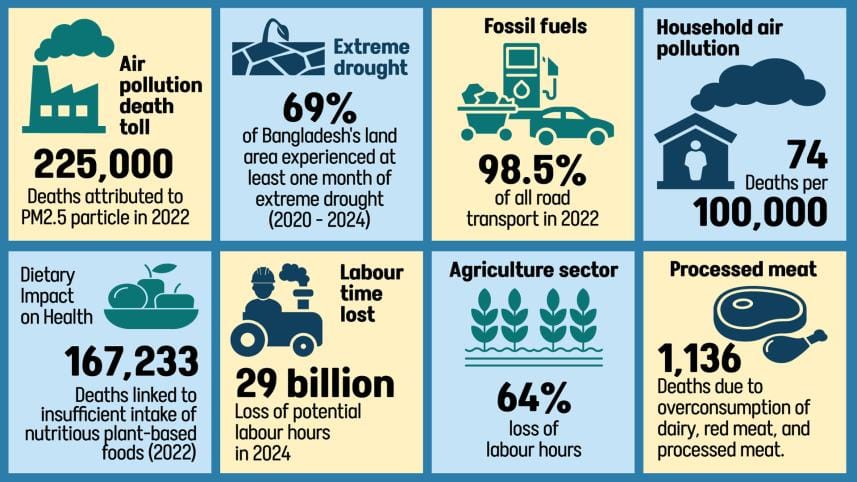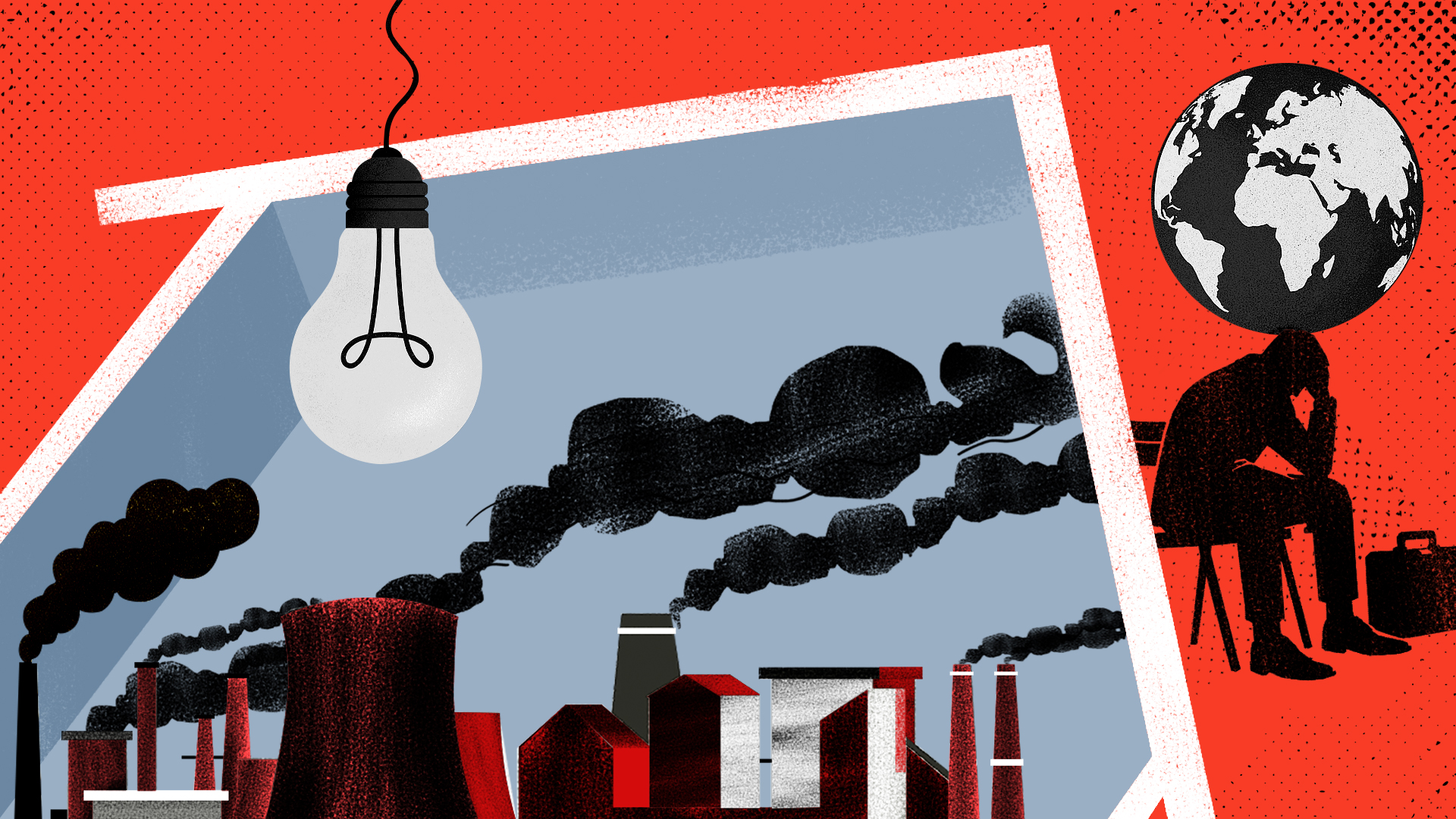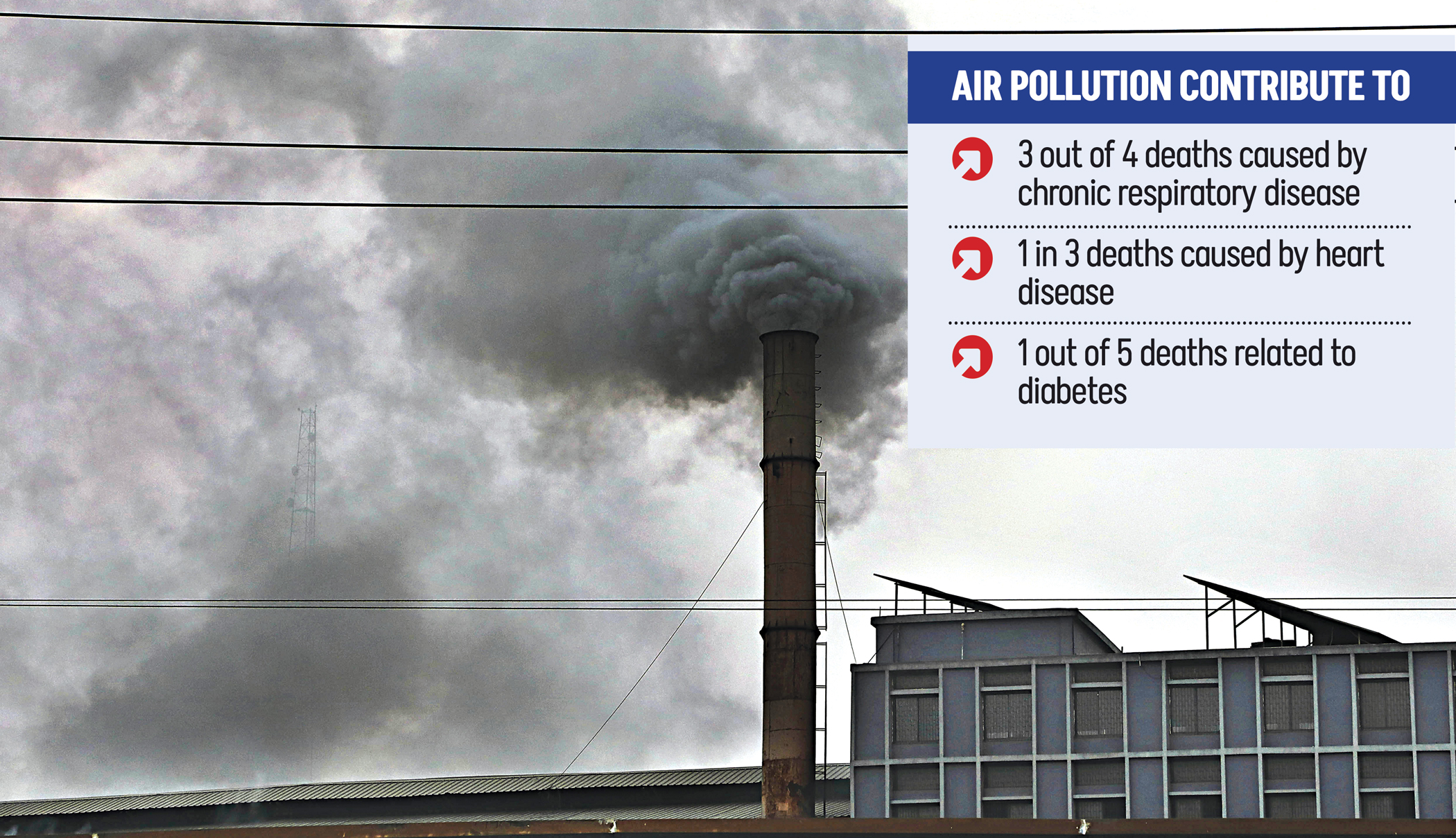Bangladesh saw 2.25 lakh deaths from air pollution in 2022: Lancet report

Bangladesh recorded 225,000 deaths linked to anthropogenic (caused by human activities) air pollution (PM2.5) in 2022, a 28 percent rise since 2010 -- with 30,600 deaths directly attributed to fossil fuels, according to the 2025 Global Report of the Lancet Countdown released today.
Despite this toll, Bangladesh allocated US$8.2 billion in fossil fuel subsidies in 2023 alone, exceeding its carbon pricing revenue and resulting in net-negative carbon income.
Coal burning, mainly for power generation, accounted for 32 percent of fossil fuel-related deaths, while household air pollution caused an additional 74 deaths per 100,000 people -- 88 per 100,000 in rural areas and 50 in urban areas, the report says.
The Lancet Countdown report paints a stark picture of a country battling the health costs of environmental degradation while still increasing its fossil fuel dependence.
In 2024, Bangladesh endured an average of 28.8 heatwave days, of which 13.19 could have been avoided without climate change. Extreme heat caused the loss of 29 billion potential labour hours, 92 percent higher than the average from 1990-1999, with agriculture bearing 64 percent of the losses. The resulting income loss reached US$24 billion in 2024, or 5 percent of GDP.
From 2020 to 2024, 69 percent of Bangladesh's land area experienced at least one month of extreme drought per year -- nearly four times higher than the annual average between 1951 and 1960. And from 2019 to 2023, 84 percent of the population was exposed to unsafe dust levels exceeding WHO guidelines at least once.
Between 2016 and 2022, Bangladesh's CO₂ emissions from fossil fuel combustion surged by 30 percent, reaching 103,891 kilotonnes. Coal's share in total energy rose from 1.3 percent in 2016 to 5.4 percent in 2022.
The rise in coal-based electricity mirrored this trend, increasing from 4.3 percent to 5.5 percent. In contrast, renewable energy accounted for just 0.1 percent of total energy and 0.85 percent of electricity in 2022.
The Lancet report also highlighted that in 2022, fossil fuels still powered 98.5 percent of all road transport in Bangladesh.
Meanwhile, the health impacts continue to mount. The report highlighted 167,233 deaths in 2022 linked to insufficient intake of plant-based foods, alongside 1,136 deaths from over-consumption of dairy, red meat, and processed meat.
Climate conditions also became more favourable for disease vectors. The suitability for dengue transmission increased by 90 percent from the 1951–1960 baseline to the 2015–2024 period.
In 2024, nearly 14 million people lived less than one metre above sea level -- facing high vulnerability to sea level rise. And despite such risks, deforestation continues, with the country losing 20,000 hectares of tree cover in 2023, a 1 percent increase from 2021.
"This year's health stocktake paints a bleak and undeniable picture of the devastating health harms reaching all corners of the world -- with record-breaking threats to health from heat, extreme weather events, and wildfire smoke killing millions. The destruction to lives and livelihoods will continue to escalate until we end our fossil fuel addiction and dramatically up our game to adapt," warned Dr Marina Romanello, executive director of the Lancet Countdown at University College London.
The Lancet report concludes with a warning: the global delay in transitioning away from fossil fuels, exacerbated by funding shortfalls and lack of international cooperation, is costing lives and deepening economic strains. For Bangladesh, the costs are already alarmingly evident.




 For all latest news, follow The Daily Star's Google News channel.
For all latest news, follow The Daily Star's Google News channel. 

Comments